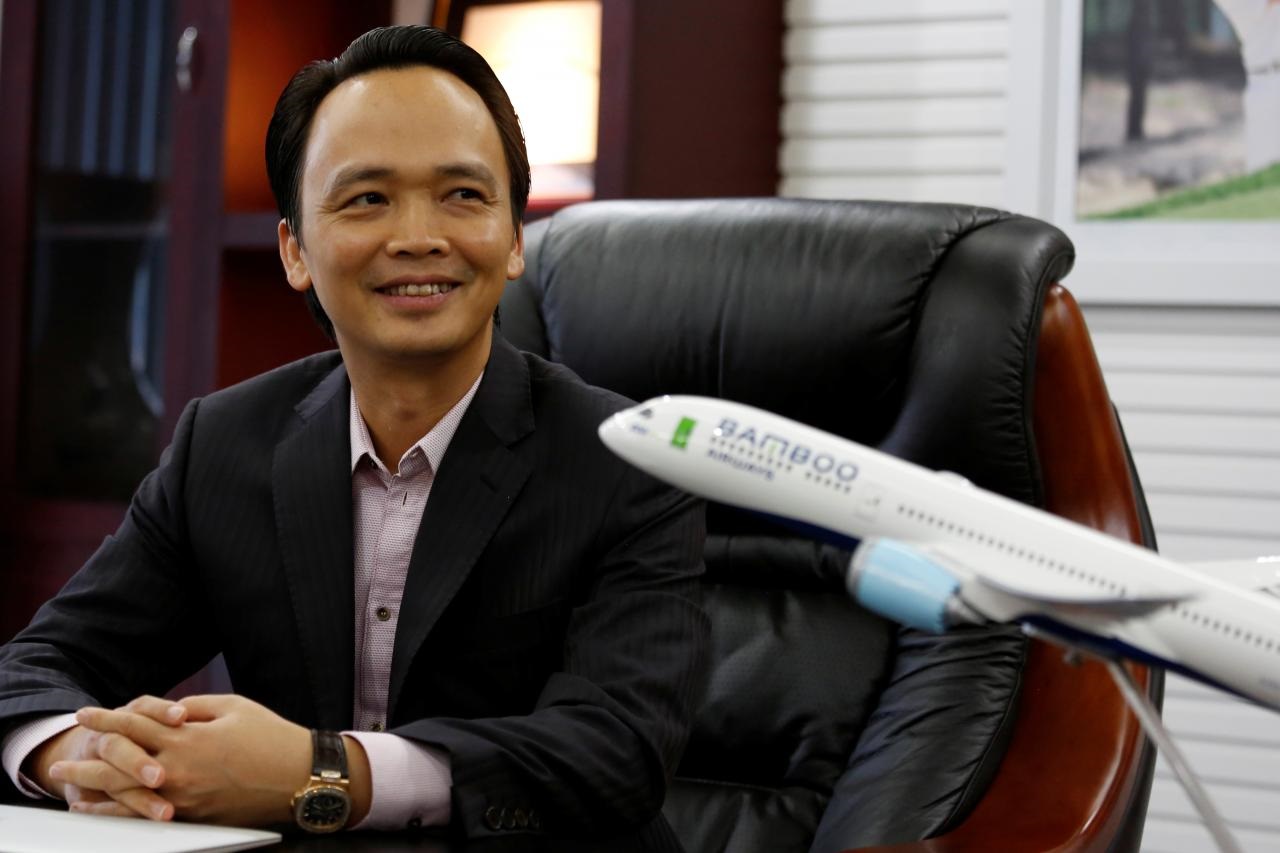HANOI -- Bamboo Airways aims to make its first domestic flight on Dec. 29 should it receive its license to fly, beginning a journey which could see Vietnam’s fifth carrier rival the market leader in size within a year, its chairman told Reuters.
The maiden flight will connect the capital Hanoi with the coastal resort city of Quy Nhon, where parent FLC Group JSC has one of its around 30 hotels and 20 golf courses, said Trinh Van Quyet, who is also chairman of FLC.
“As well as main cities, we’ll fly to domestic destinations existing airlines don’t reach,” Quyet said in an interview on Monday. “Our first international flights will connect Vietnam with South Korea and Japan, early in the second quarter.”
“There has been a surge in the number of golfers coming from South Korea to play in Vietnam recently,” he added, saying that direct flights to the United States is also a Bamboo goal.
The launch comes as Vietnam clocks double-digit expansion in both domestic and inbound passenger numbers, at a time of rising incomes in one of Asia’s quickest-growing economies. Meanwhile, the government aims to make tourism a growth driver through visa exemptions and promoting investment in related infrastructure.
Bamboo initially scheduled its maiden flight for October but delayed as it did not have a business license, which it received earlier this month. But it is still awaiting its air operator’s certificate (AOC), without which it will remain grounded.
“We are processing Bamboo Airways’ request for an AOC. We will issue the AOC when all the requirements are met,” said Vo Huy Cuong, deputy director of the Civil Aviation Administration.
Bamboo hopes to begin ticket sales at the end of November. It plans to operate initial routes with leased aircraft.
Fleet building
Bamboo signed a memorandum of understanding with Airbus SE in March to buy up to 24 A320neo narrow-body jets, and a provisional deal in July for 20 Boeing Co 787-9 wide-bodies worth $5.6 billion at list prices.
“We will operate 10 planes when we start services and expand to 40 or 50 planes by the end of next year,” Quyet said.
It took domestic market leader VietJet Aviation JSC around six years after launch to build a fleet of 50 aeroplanes.
One industry source, speaking on condition of anonymity, was skeptical Bamboo could reach such scale in the time frame given.
“It’s impossible to add aircraft as fast as it says it will given regulatory restrictions preventing any airline from expanding its fleet so rapidly in the initial phase, plus slot restrictions and infrastructure constraints in Vietnam,” said the source.
Quyet said the target was designed to increase plane availability to guarantee ticket supply. “The risk would be higher if we chose to start with only 1 to 3 planes,” he said.
Aviation consultancy CAPA said Bamboo would need to overcome “intense competition” from established players that serve destinations it is targeting and already have slots at major airports where demand is robust.
To differentiate itself, Bamboo will use its parent’s golf courses, which will number 100 by 2022, Quyet said.
“We will offer packages that no other local airline can,” he said.
“Once we do this, we want to do it big and different. Bamboo Airways has a different business orientation and we invest big right from the beginning, not from small to big”.



















































